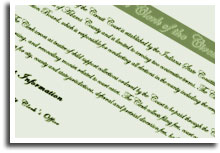Yesterday, Kevin O’Keefe wrote about his efforts to reconnect with his clients by visiting them one at a time. When he mentioned that the United Airlines “Speech” commercial (about having a face-to-face chat with every customer) aired 20 years ago, I was sure he was wrong because that commercial remains fresh in my mind. I looked around online and Kevin was right.
Despite the truth of the message conveyed in that commercial, United no longer does business “with a handshake, face-to-face.” Instead, United pushes all its customers to purchase tickets online. And, if you want to purchase tickets from a reservation sales agent, “the total price will include a $25 call center fee per ticket.” Once on board, United has also slashed its meal service so that if you want food, you either have to bring it yourself or purchase it from United. For the airline, that may save money and reduce wasted food; however, this approach also reduces the amount of service provided to customers and the opportunity for leaving a memorable experience. The net result is that all airlines provide an indistinguishable experience, except for JetBlue.
Another industry that has followed this approach is the banking industry. I don’t know if any banks still continue the practice of charging teller fees, but talk about completing dehumanizing your customer service experience. The funny thing is that a few months ago, I started receiving a lot of calls from banks asking me to open new accounts. Yes, these were banks that had accepted TARP money. But, who’s going to discuss their financial situation with some unverified person on the other end, even if you are sure it’s not a phishing attempt. The best bet for the banks would be for the teller to recommend some new financial products for the customer. But, if you push every one off to use ATMs, then you may need to do business with a handshake again, face-to-face.

 Kevin O’Keefe
Kevin O’Keefe  Justia recently launched
Justia recently launched